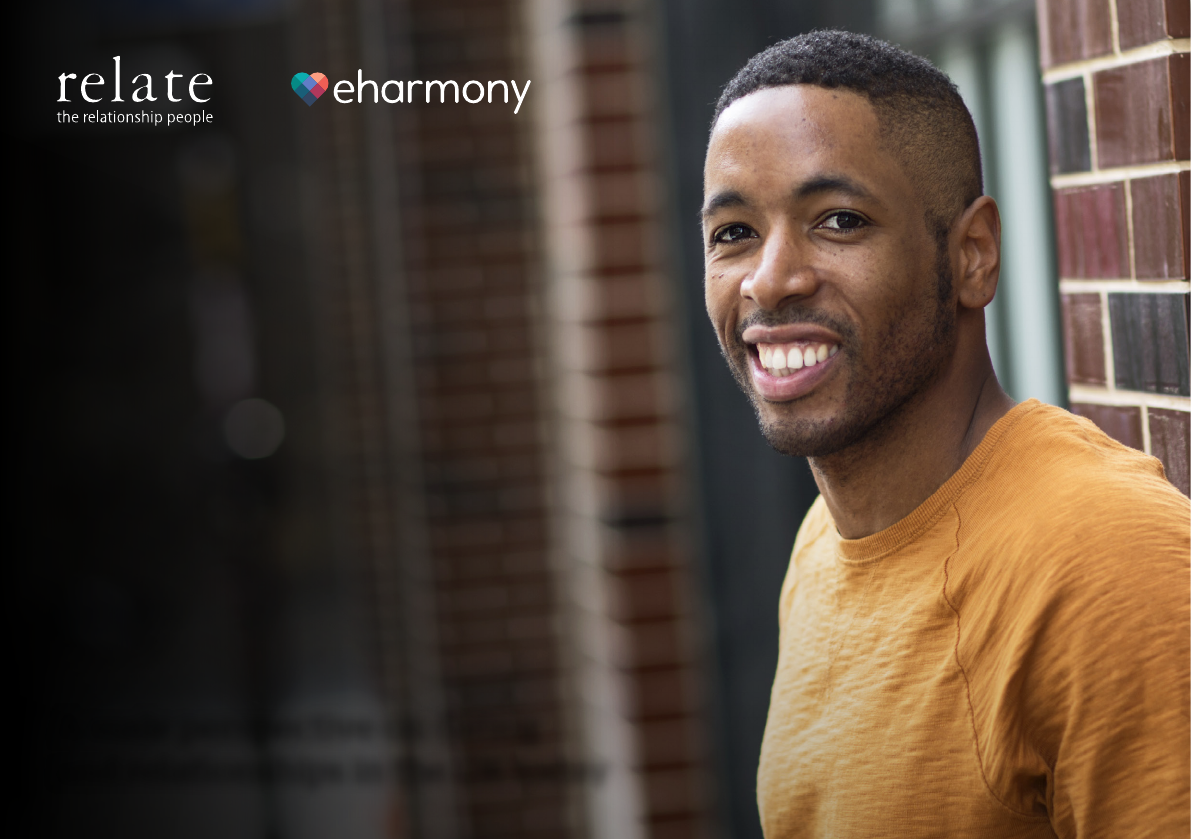
A male perspective on dating
and relationships in the UK today
Men’s Heads
and Hearts

Forewords 3
Aidan Jones, Relate CEO 3
Romain Bertrand, UK Managing Director, eharmony 4
Methodology 5
Dating – what men are looking for in a partner 6
Men feeling insecure when dating 7
Impact of the #MeToo movement 8
Confusion around dating etiquette 9
The role of patriarchy in dating 10
Men in relationships – do set gender roles still exist? 11
Is communicating critical? 12
Being open about mental health 13
What are the barriers to accessing help? 15
eharmony’s tips for men who are dating 16
Relate’s tips for men in relationships 17
Accessing support 18
Contents
2Men’s Heads and Hearts: A male perspective on dating and relationships in the UK today

Foreword
As we emerge from what has been
an extraordinary 18 months, we wanted
to explore specifically how men are
feeling about dating and relationships.
From previous research
1
and from our
own experiences supporting couples and
individuals with their relationships and
wellbeing, we know that men oen find
it harder than women to ask for and seek
help.
We also know that gender stereotypes still
exist within our society and we wanted
to investigate whether this continues to
aect views when it comes to dating and
also within roles in relationships.
Our findings are varied and interesting.
60% of single men surveyed have felt
insecure when dating with the fear of
rejection being a main contributing factor.
And our poll found that almost one in four
men think that the #MeToo movement has
had an impact on their approach to dating.
One in five men state that they feel
comfortable showing their vulnerability in
a romantic relationship. It feels that a step-
change here is needed especially as one in
seven men report to be currently suering
from poor mental health
2
but only one
in ten men surveyed would consider
counselling as an option.
Aidan Jones
Relate CEO
We know from our previous research
3
that men oen feel able to talk more
openly where there’s a certain degree of
anonymity. When the pandemic hit we
adapted how we operate – quickly moving
all of our relationship support services
online.
Our phone counselling, WebChat and
Message a Counsellor services are
therefore options which men may wish
to give particular consideration to.
Webcam counselling also has the benefit
of being convenient and anecdotally
our counsellors tell us clients have been
quicker to open up about their feelings
when in the comfort of their own home.
If you’re aected by any of the issues
raised in this report, please see the final
page for a list of services and resources
available. We’d like to thank eharmony
for making this research possible.
"From previous research and from our own experiences supporting
couples and individuals with their relationships and wellbeing, we
know that men oen nd it harder than women to ask for and seek help."
1 https://www.relate.org.uk/sites/default/files/
publication-see-it-my-way-2013.pdf
2 This finding combines respondents who said ‘very
poor’ and ‘poor’.
3 https://www.relate.org.uk/sites/default/files/
publication-see-it-my-way-2013.pdf
Men’s Heads and Hearts: A male perspective on dating and relationships in the UK today 3
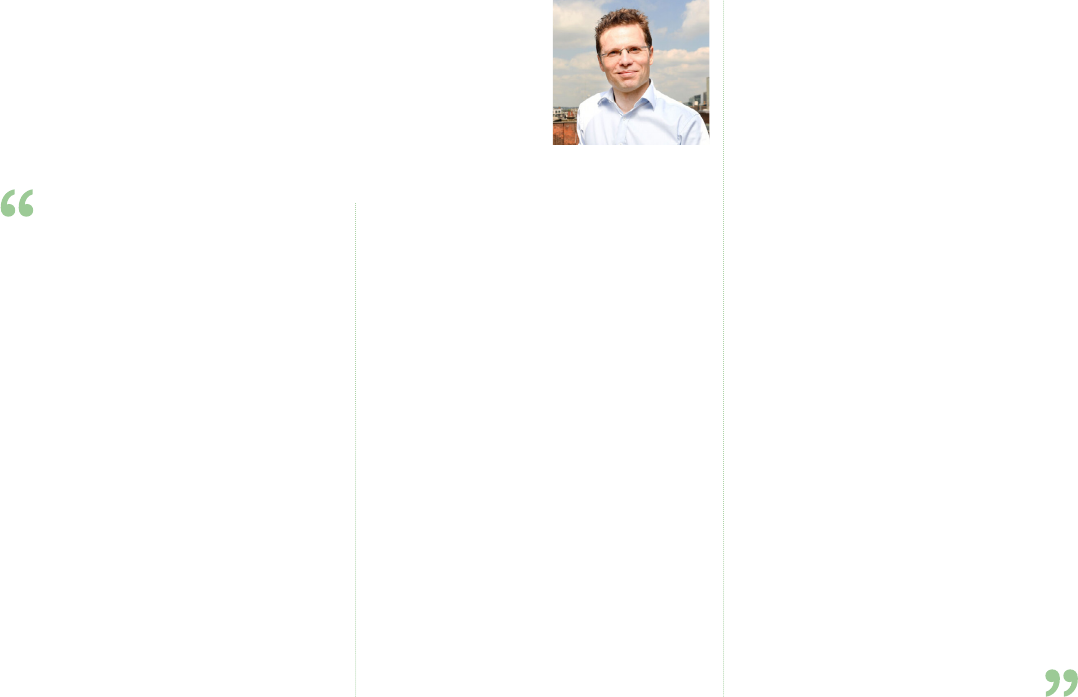
The COVID-19 pandemic has
changed the very fabric of our society and
the way we interact with family, friends
and potential love interests. The dating
scene has seen a monumental shi – in
particular – with video and virtual dating
mitigating feelings of disconnect.
And though our methods of
communication may have changed, the
complexities of dating remain. Our report,
examining the way in which men date, has
shone a spotlight on some endemic issues
they face, notably feeling insecure when it
comes to finding love.
It would be implausible to say with
absolute certainty where these
insecurities are rooted, due to the
dynamism of every individual, but our
research gives us valuable insight.
Foreword
Romain Bertrand
UK Managing Director, eharmony
Interestingly, the research we’ve
uncovered with Relate suggests men
and women share many of the same
commonalties when it comes to their
romantic insecurities. Men confess they
struggle with a fear of rejection and
worries about their appearance, which
echoes what our female users have been
telling us for years.
But where the genders potentially diverge
is around their attitudes to modern
dating etiquette. For instance, according
to our report, many men have felt the
impact of the #MeToo movement, with
the onus inevitably on them to anticipate
appropriate romantic conduct, including
more subtle behavioural cues such as who
should initially pay the bill. Whereas, for
women, this is hopefully a relatively more
empowering era.
There are indications that discussing
their mental health is becoming less
stigmatised for men, with around a fih
saying they could talk openly to their
partner about such issues.
This openness in communication is
core to both those in relationships, and
those searching for love. Real love isn’t
neat or tidy, there are problems and
challenges to face. Which is why highly
compatible couples fare better, because
they usually share the right conflict
resolution skills.
Above all, as experts in dating, we
know that clear communication helps
intimacy flourish, and eharmony’s
unique Compatibility Matching System is
designed with this in mind. Connecting
singles who will feel confident enough
to open up to one another about their
insecurities is fertile territory for a
secure and loving partnership.
We’d like to thank Relate for their
invaluable access to working practice
counsellors who made this research
all the more authentic.
4Men’s Heads and Hearts: A male perspective on dating and relationships in the UK today

Relate and eharmony conducted a focus group
with four practising Relate counsellors to
understand the challenges men face when dating.
They also spoke to a small selection of men and
some quotes are included in the report.
Censuswide conducted supplementary UK research in
September 2021, among a nationally representative sample of
2,009 UK consumers. This was then boosted to include 1,031
single respondents, and 201 respondents in Northern Ireland
for a total of 2,531 respondents surveyed.
This report focuses predominantly on exploring men’s attitudes
to dating, relationships and their mental health and wellbeing.
The report does not cover the needs of specific groups of
men nor does it look at dierences in responses from men of
dierent ethnicities nor those from diering income brackets
(although men from all communities took part in the research).
We briefly cover responses from males from the LGBTQ+
community
4
where the poll size was large enough to share a
specific response for this group. For the purposes of this report
the term ‘men’ and ‘male’ are used for all individuals who have
self-identified as such.
Methodology
Why is this report focusing predominantly on men
and those identifying as male?
We know from previous research undertaken by
Relate and the Men’s Health Forum that men are less
likely to seek help, both with health and wellbeing
problems and with their relationships.
5
We want to explore how men are really feeling in
2021. We want to unpack the realities of dating as
a modern man and ask men in relationships what’s
important to them. Also we want to understand how
men are feeling about their mental health and their
openness to seeking support such as counselling as
we emerge from what has been a challenging time
for us all. By shining a light on how men are actually
feeling, we hope to challenge some of the gender
stereotypes still prevalent in today’s society and at
the same time continue to raise the importance of
seeking help and support.
5
4 This includes men self-identifying as gay, bisexual, asexual or other.
5 https://www.relate.org.uk/sites/default/files/publication-see-it-my-
way-2013.pdf
Men’s Heads and Hearts: A male perspective on dating and relationships in the UK today
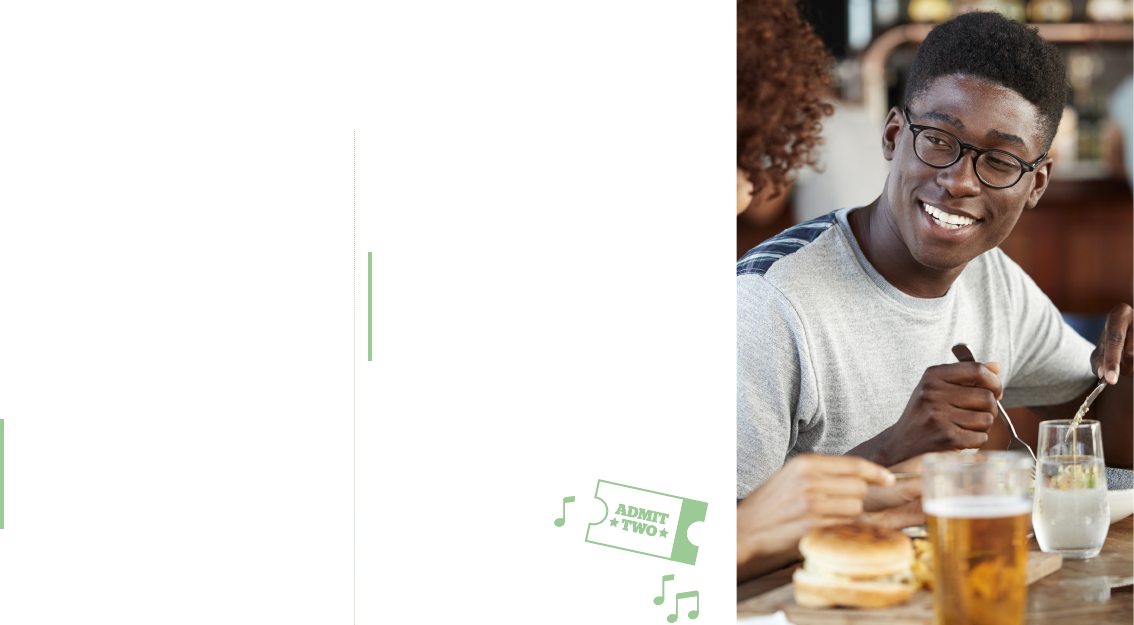
Dating – what men are looking for in a partner
Our research shows one in four single,
male respondents are looking for
companionship from their romantic
life, with one in five looking to find real
love. Just over one in ten of this same
group (11%) said that they were looking
for no strings sex and over one in five
were looking for someone to share their
hobbies and interests with (22%). This
response was supported by what Relate is
seeing in its counselling sessions:
“Men are traditionally thought of as
seeking sex, not relationships. I think this
is changing and I’m seeing more men
looking for relationships but some aren’t
sure how to go about making it happen.”
– Peter Saddington, Relate Counsellor
When asked what qualities are considered
to be the most important in a romantic
partner, the top three responses
from men were honesty (47%), being
trustworthy (47%) and having a good
sense of humour (42%).
“The pandemic massively decreased social
contact and so at the moment it feels like
we are making up for lost time. It’s great
to be able to go on dates again and meet
like-minded individuals.”
– Single male
With gender stereotypes often shaping expectations as to what men
and women are looking for in a partner, we wanted to explore the
reality of what men are actually seeking when it comes to dating.
22%
of men were looking for
someone to share their
hobbies and interests with
6Men’s Heads and Hearts: A male perspective on dating and relationships in the UK today
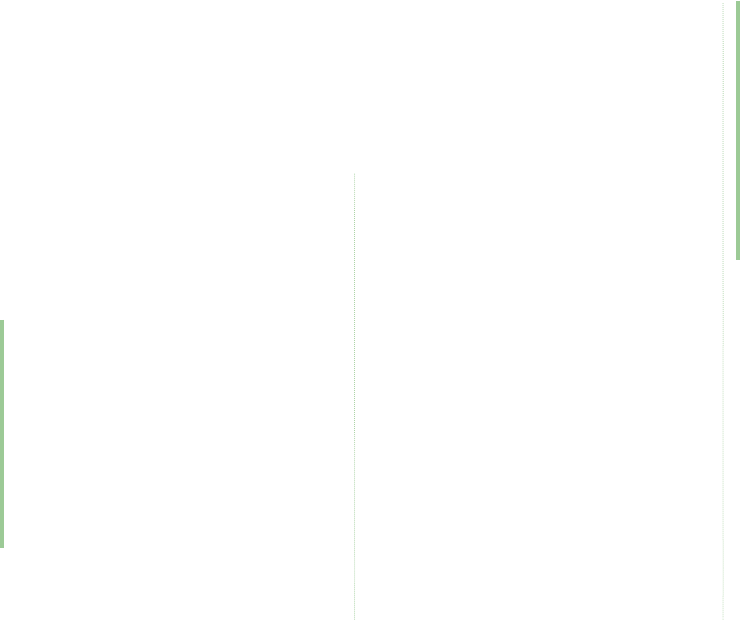
Men feeling insecure when dating
When we looked into this further we found
that a fear of being rejected (27%) was the
main contributing factor, closely followed
by their age (24%) and their overall
appearance (24%).
“As counsellors we oen see that men have
the same concerns and insecurities around
dating as women do but sometimes they
find it harder to admit. Whilst almost two
thirds of men surveyed admit to feeling
insecure, I wonder if this number is actually
even higher but that some men are still
struggling to be honest because of real or
perceived expectations placed on them.”
– Gurpreet Singh, Relate Counsellor
The perceived importance of appearance
when it comes to dating certainly seems to
Women are often thought of as feeling insecure when it comes to
dating and our poll confirmed this with 78% of the single women we
questioned agreeing that they had felt insecure when dating new
people. What is perhaps more surprising is that 60% of single men
surveyed have also felt insecure when dating new people.
6
be on the rise. Mind’s recent Get it o your
chest report found that the number of men
who are worried about their appearance
has increased from 18% in 2009 to 23%
in 2019, with worries being the greatest
amongst 18-24 year old males at 39%.
7
Our research supports these concerns –
12% of single men surveyed feel that they
don’t have the ‘Love Island’ aesthetic
which is popular right now and that this is
contributing to feelings of insecurity. This is
further backed up by the finding mentioned
earlier about overall appearance being a
top reason for men’s dating insecurities.
Relate Counsellor Josh Smith is seeing
individuals with the same concerns around
appearance in many counselling sessions:
6 This statistic combines ‘Yes – Sometimes’ & “Yes –
Always’ answer options.
7 https://www.mind.org.uk/media/6771/get-it-o-
your-chest_a4_final.pdf
“Admissions to eating disorder clinics have
rocketed during the pandemic. While
women are more likely to suer from
disordered eating, we know that it is
underreported in the male population,
who are less likely to seek help. General
anxiety around appearance, and body
dysmorphia specifically, is influenced
by the portrayal of ‘perfect’ bodies on
programmes such as Love Island and on
social media.”
Further factors driving dating insecurities
for men include prior bad experiences
(19%), plus the feeling that they’re ‘out of
practice’ aer coming out of a long-term
relationship (13%). When it comes to dating
new people in the LGBTQ+ community,
feelings of insecurity are even more
prevalent with almost three quarters of
men surveyed (74%) stating that they have
felt insecure about dating new people.
7Men’s Heads and Hearts: A male perspective on dating and relationships in the UK today
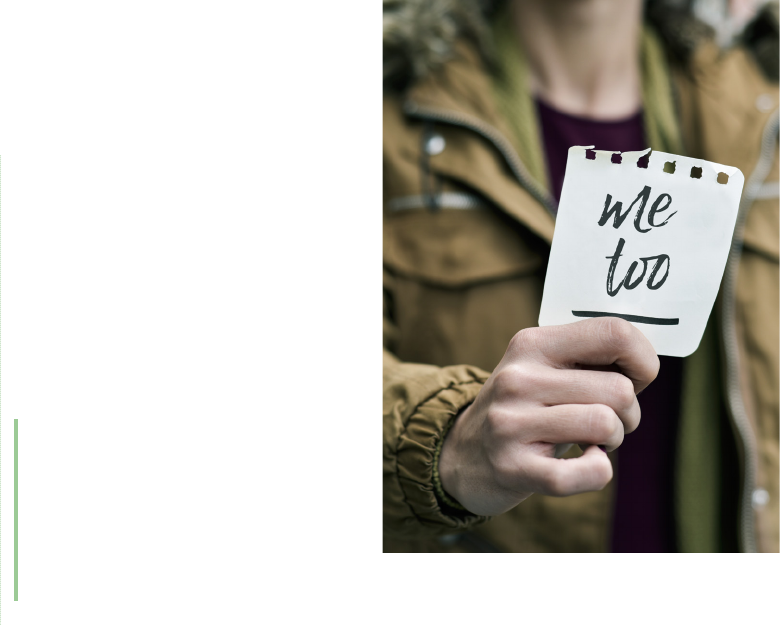
Impact of the #MeToo movement
This increases significantly for men aged
25–34 with 66% of those surveyed feeling
the impact; this figure greatly reduces to
only 20% of men over the age of 55.
For some men the movement has opened
their eyes to feeling more informed about
the importance of consent (14%). For
others it has made them consider how
they are perceived by women (13%). And
one in ten male respondents (10%) feel
ashamed about how they have previously
treated women, with 8% saying it made
them recognise their past behaviour was
unacceptable.
But there’s clearly some way to go – for
example research in 2021 by the All Party
Parliamentary Group for UN Women
found that more than four fihs (86%)
of UK women aged 18–24 report having
been harassed in public spaces.
8
According to our survey almost a quarter
(24%) of men said they’d not really heard
of the #MeToo movement and more
than one in ten (11%) think #MeToo is
exaggerated. In addition, one in ten (10%)
said they are now more confused than
ever around how to behave.
“Sexual abuse and harassment is never
acceptable and the damage caused by
this is something we regularly see in
counselling sessions. Whilst four in ten
men across all age groups report having
changed their behaviour as a result of
#MeToo, it is encouraging that the number
is higher amongst younger men surveyed.”
– Josh Smith, Relate Counsellor
There’s no denying the positive and widespread impact of
#MeToo – the social movement against sexual abuse and sexual
harassment. 39% of men surveyed overall think that their
approach to dating has been affected by #MeToo.
8 https://www.unwomenuk.org/site/wp-content/
uploads/2021/03/APPG-UN-Women-Sexual-
Harassment-Report_Updated.pdf
8Men’s Heads and Hearts: A male perspective on dating and relationships in the UK today
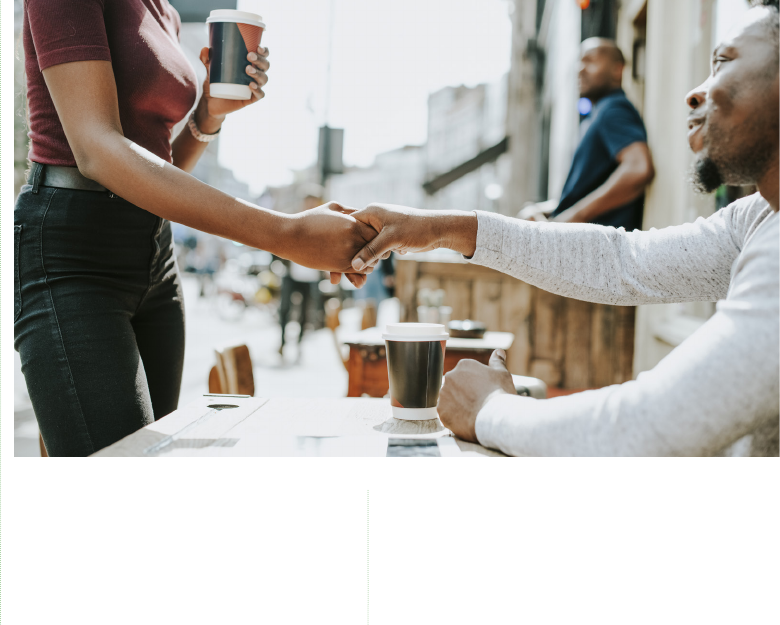
Confusion around dating etiquette
So it’s no surprise that this has also
carried over into the dating world. More
than one in ten (11%) men feel confused
by modern dating.
Furthermore one in ten men (10%) feel
scared that they are going to say or do
something wrong when on a date and one
in seven (13%) men think it’s harder for
them to date than it was 10 years ago.
The feelings of insecurity and confusion
around dating expectations seem
prevalent across both genders with our
poll finding that almost one in five men
(19%) think that they should pay the bill
on a date. Interestingly less than one in
ten women (9%) agree that men should be
the ones to pay. Just under 3 in 10 women
surveyed think that you should split the
bill on a date (29%) compared to 17% of
men. It seems that a degree of gender
stereotyping is still at play here although
The pandemic has meant that
we’ve needed to adapt how we
behave in society and social
norms that were once taken for
granted, such as how we may
greet someone for example,
have become more confused.
fascinatingly our findings show that more
men think that the onus falls on them to
pay whereas more women are challenging
this approach and think that splitting the
bill is the way forwards.
9Men’s Heads and Hearts: A male perspective on dating and relationships in the UK today

The role of patriarchy in dating
Relate counsellor Josh Smith thinks it can
sometimes be traced back to seeing our
parents’ relationships:
“I see many clients who are quite shocked
by how ‘old-fashioned’ their relationships
have become. They find themselves
repeating the patterns set by their
parents, who in turn were influenced by
their parents. So despite oen ascribing
to modern values around gender equality
and the division of labour, men in
particular oen find themselves falling
back into the patriarchal behaviours that
they observed as children. This creates
unhappiness within intimate relationships,
especially for women, because
expectations aren’t met by reality.”
This is supported by our survey findings
with 14% of men recognising that some of
Whilst there is more awareness of gender stereotyping in
recent years there’s no denying that preconceived views
about men and women still exist in many facets of our society.
their views on dating and relationships are
now outdated.
When asked specifically about patriarchy
in today’s society and if it’s still a problem,
13% of men thought that it was compared
to 21% of women. Over one in ten men
(11%) felt that they still need to be the
stronger partner and a similar number
(11%) thought that it was harder for men
than women to meet and date new people
in 2021 with only one in twenty women (5%)
agreeing with this.
eharmony relationship expert Rachael Lloyd
thinks that oen men are fighting against
the stereotype of ‘being the strong partner’:
“The way for men to navigate modern
relationships is to listen, be willing to
make changes and to communicate more.
However men oen have to deal with a
bias of feeling ‘I’m strong; I’m right’ and
this may be partly due to their perception
of how a man should be. There’s oen
a fear of emasculation and humiliation
which comes with allowing yourself to be
vulnerable and maybe even reassessing
your view of the world.”
10Men’s Heads and Hearts: A male perspective on dating and relationships in the UK today
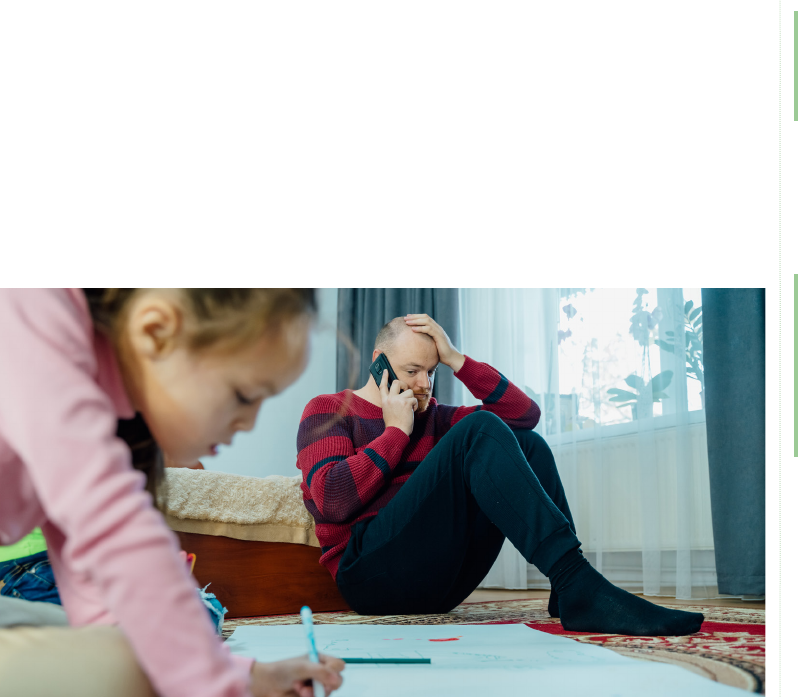
Men in relationships – do
set gender roles still exist?
Relate counsellors are seeing the impact of the pandemic on
relationships with more people being based at home either
because of job losses or because they are still working
from home. This has often led to changes in roles and
responsibilities for couples, with some struggling to adjust.
“For many men going to work is a refuge.
An increase in domestic and childcare
responsibilities have been a source of
stress for many relationships over the past
18 months.”
– Josh Smith, Relate Counsellor
For some men, however, being able to
work from home has positively improved
their work-life balance.
“Having the ability to work from home has
meant that I’ve engaged more with my
partner and been able to do the school run
more frequently, which I’ve really enjoyed.
This has led to a stronger relationship with
my daughter and a feeling that I’m playing
a more active role in day-to-day family
life.”
– Andy
Our survey found that over a third of men
(38%) feel that household chores should be
divided equally between partners with this
rising to almost half of women surveyed
(49%). In total 12% of men surveyed
thought that women should look aer the
domestic needs of the family whilst men
should work and provide for the family.
11Men’s Heads and Hearts: A male perspective on dating and relationships in the UK today
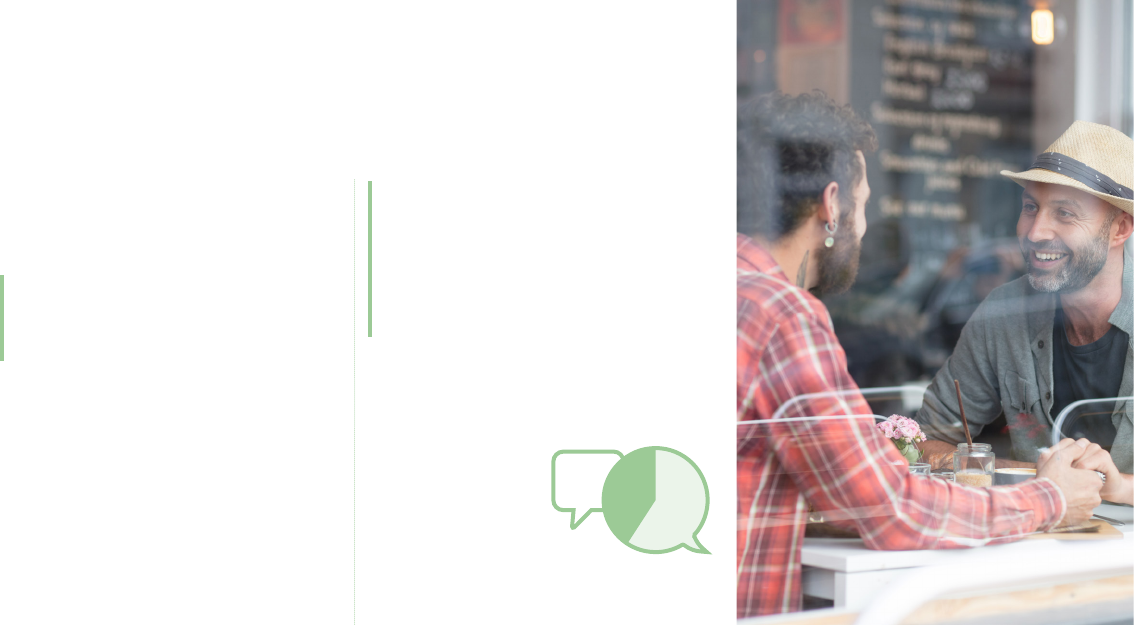
Is communicating critical?
Relate Counsellor Peter Saddington thinks
some of the problem stems from men
struggling to know how to open up:
“I find that men oen do want to talk to
their partners and discuss their problems,
they just don’t know how to start the
conversation and make it actually happen.”
Our poll found that 20% of male
respondents feel comfortable showing
their vulnerability in a romantic
relationship. Whilst this is encouraging
and starts to dispel some of the myths
around ‘real men not showing their
sensitive side’ it also shows that there is
more work to do on removing the stigma
of men being able to have open and
honest conversations and seek support.
“Men want to open up and be able to be
honest and vulnerable but oen need
encouragement or the right environment
to do this. It’s positive that more men are
feeling able to talk to their partners and
accessing counselling support can also
oer a safe space.”
– Simone Bose, Relate Counsellor
There’s much research and advice out there about the importance of
communication in relationships and it’s a fundamental part of Relate’s
work supporting couples, yet only 41% of male respondents think that
communication is key to a successful relationship compared to 56%
of women. In the LGBTQ+ community just over a third of men polled
(36%) think that communication is key to a successful relationship.
Only
41%
of men think that
communication is key to
a successful relationship
compared to 56% of women
12Men’s Heads and Hearts: A male perspective on dating and relationships in the UK today

Being open about mental health
Our poll found that 16% of men surveyed would describe their current
mental health as poor compared to 21% of women. This increases to
one in four millennials (26% of all respondents aged 1624).
9
The Samaritans’ report Men, Suicide and
Society found that the way men are taught
through childhood to ‘be manly’ does not
emphasise social and emotional skills.
10
And the government’s recent stance on
making the teaching of Relationships and
Sex Education (RSE) compulsory in schools
in England highlights the importance for all
children of starting the conversation about
healthy relationships at an early age.
“The now-mandatory focus on
Relationships Education in primary schools
and Relationships and Sex Education in all
secondary schools is warmly welcomed by
Relate. Starting to educate children and
young people from an early age creates
the building blocks of positive relationships
and will work towards challenging gender
stereotypes and providing a channel
to open up conversations about sex,
relationships and wellbeing.”
– Aidan Jones, CEO of Relate
One in five men (20%) can talk openly to
their partner with 17% feeling able to talk
openly to friends and family about how
they’re feeling.
And 18% of male respondents think that
they are better talking about their mental
health than they used to be. Whilst this
shows that some men feel comfortable
opening up, it also shows that more needs
to be done to help the five in six men who
are still struggling to be able to discuss
their mental health and wellbeing.
16%
of men described their
mental health as poor
9 This finding combines respondents who said ‘very
poor’ and ‘poor’.
10 https://media.samaritans.org/documents/
Samaritans_MenSuicideSociety_
ResearchReport2012.pdf
13Men’s Heads and Hearts: A male perspective on dating and relationships in the UK today

The role of the media
It feels that over the last few years there
has been a substantial and much-needed
shi in the conversations about mental
health. High-profile individuals opening
up about their own struggles alongside
the media communicating that ‘it’s okay
not to be okay,’ has helped to begin to
change perceptions. This is also being
reflected in counselling sessions:
Men’s mental health in the
LGBTQ+ community
Mind’s recent research has found that gay,
bisexual and trans (GBT) men are more
likely to report poor mental health with
more than two in five GBT men (46%)
experiencing depression in the last year.
11
Whilst the reasons for this are complex
and varied many people attribute it at
least partly to stigma and discrimination
related to sexuality or gender identity.
Our survey found that over one in five
(22%) male respondents in the LGBTQ+
community
12
felt that their mental health
was currently poor.
13
11 https://www.mind.org.uk/media/6771/get-it-o-
your-chest_a4_final.pdf
12 This includes men self-identifying as gay, bisexual,
asexual or other.
13 This finding combines respondents who said ‘very
poor’ and ‘poor’.
“The media is now helping to reinforce
the message that you don’t always have
to be macho and it’s okay to value a
relationship has helped men to come
to sessions and be more honest. That if
a relationship breaks down, there are
going to be issues and things to work
through and that’s normal.”
– Peter Saddington, Relate Counsellor
22%
of GBT men felt their mental
health was curently poor
14Men’s Heads and Hearts: A male perspective on dating and relationships in the UK today
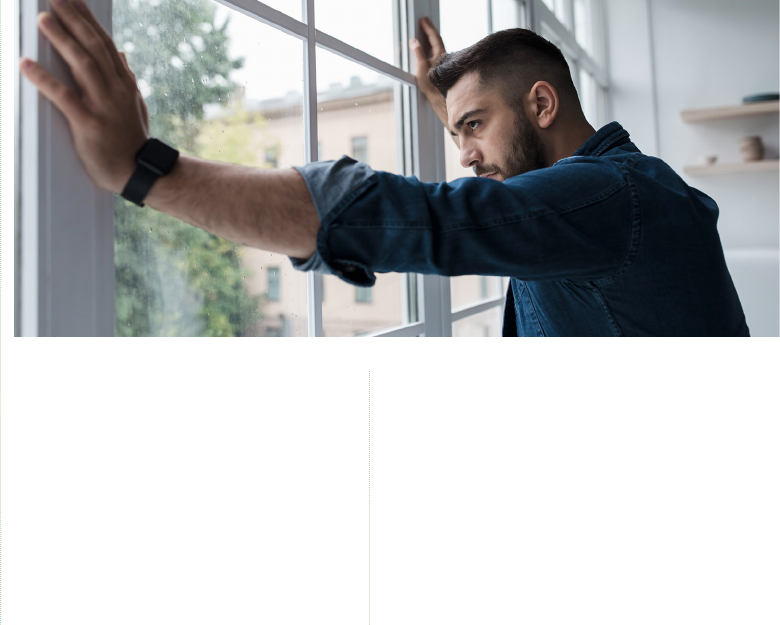
What are the barriers to accessing help?
However our poll found that only one in
ten men surveyed (10%) would consider
counselling if they were experiencing
relationship issues and only 13% have
accessed counselling in the past.
In 2011, 44% of Relate’s clients were
men and we know that they are more
likely to exit earlier from the counselling
process.
15
In 2020-21 the number of
men accessing Relate’s services was the
same as ten years earlier (44%).
16
Whilst
it feels that the conversation around
accessing support is beginning to open
up, there’s clearly still work to do in
encouraging men to seek help.
Relate’s Try to see it my way report found
that men are more likely to seek support
if they can access it remotely.
17
Feedback
has shown that making the process as
anonymous as possible also helps to
break down some of the barriers in place.
Relate oers a variety of counselling and
support options. These include WebChat,
the Message A Counsellor email service
and phone counselling which all oer a
certain degree of anonymity. Webcam
counselling is also hugely popular.
Recent research has found
that men are three times more
likely to see a therapist when
worried than in 2009
14
which
certainly feels like progress.
You can access any of Relate’s services
individually or as a couple.
14 https://www.mind.org.uk/media/6771/get-it-o-
your-chest_a4_final.pdf
15 https://www.relate.org.uk/sites/default/files/
publication-see-it-my-way-2013.pdf
16 Percentage of total Relate clients broken down by
gender with appointments between 1 September
2020 and 31 August 2021
17 https://www.relate.org.uk/sites/default/files/
publication-see-it-my-way-2013.pdf
15Men’s Heads and Hearts: A male perspective on dating and relationships in the UK today

eharmony relationship expert
Rachael Lloyd’s tips for men who are dating
Be honest about what you’re
looking for (short-term versus
long-term relationship). This
will help you find someone who
aligns with your core values.
Manage your expectations:
dates are opportunities to get
to know dierent singles, one
of whom eventually might be
a good match. Don’t expect
instant results.
Avoid bare-chested pics on
your dating profile. eharmony
data suggests this leads to
considerably lower engagement
from female matches.
Post pictures which depict you
enjoying leisurely activities.
Research shows that this helps
increase singles’ match ranges.
Make a video date your new
first date. This is a great way
of establishing that initial
rapport and can fit into
anyone’s schedule.
Avoid ‘dating burnout’ by
ensuring that you don’t match
too many people at once.
Prioritise quality over quantity.
Own your dating mistakes.
Keep going for the same type
of compelling but high drama
partners? Time to stop. Still
dwelling on your ex? It’s time
to move on.
Give chemistry time to grow.
Not everyone feels it on the
first date, and choosing to
meet only the most photogenic
matches means you might
miss out on ‘the one’.
Allow yourself to
be vulnerable and
communicate. Most potential
partners love a sensitive,
enlightened modern male.
16Men’s Heads and Hearts: A male perspective on dating and relationships in the UK today 16

Relate’s tips for men in relationships
Communication is key. Think
(and talk) about what you want
from your relationship. You can
do this with help from Relate if
it’s hard to do by yourself.
Consider your views around
roles in your relationship.
Are your views in line with your
partner’s? If not, how can you
better align these to make sure
you’re both on the same page?
Help to break down some of the
stigma around mental health
and ask your male friends how
they are. And commit to listening
to them if they want to talk.
Commit to seeking help if you
need it whether that’s with a
partner or on your own.
Be honest with yourself about
what you want and be prepared
to give time and energy to your
relationship if things need
working on.
Think about trying a new hobby
or interest together. It’s fun to
learn something new and will give
you something to talk about.
17
Make time for each other.
Lockdown has been hard for
many couples. Spending quality
time together as a couple can be
a great way of reminding yourself
why you chose to be together in
the first place.
17Men’s Heads and Hearts: A male perspective on dating and relationships in the UK today
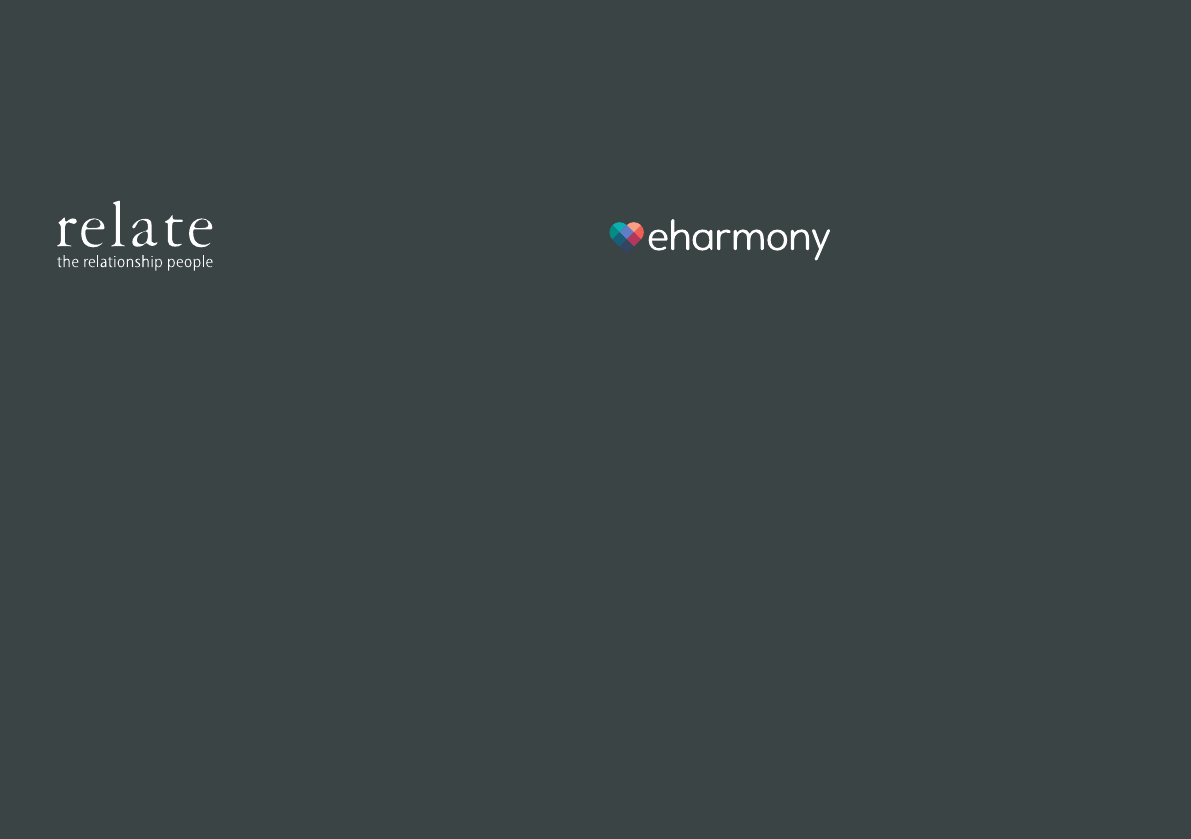
Accessing support
About Relate
We could all use some extra support sometimes. Relate
has a range of services including individual counselling,
relationship counselling for couples, mediation and sex
therapy. Currently these are provided online, usually via
webcam. Counselling is also available over the phone.
In addition WebChat oers 30 minute sessions with a
trained counsellor and Message a Counsellor is an email
service where you get a bespoke reply to a specific issue.
To find out more visit: relate.org.uk
About eharmony
eharmony launched in 2000, and now forms part of the
ParshipMeet Group the international market leader in
matchmaking. Real love remains at the heart of everything we
do. In an increasingly fast-paced dating culture, we take a more
bespoke and supportive approach to creating relationships.
Our unique Compatibility Matching System brings together like-
minded singles who share core values and personality traits,
which are key indicators of relationship success.
We are constantly evolving our matching system, designed by
psychologists, which measures each member’s profile across 32
dimensions of compatibility – factoring in traits such as kindness,
openness, and communication style. The results speak for
themselves – every 14 minutes someone finds love on eharmony.
Take our virtual tour at eharmony.co.uk
